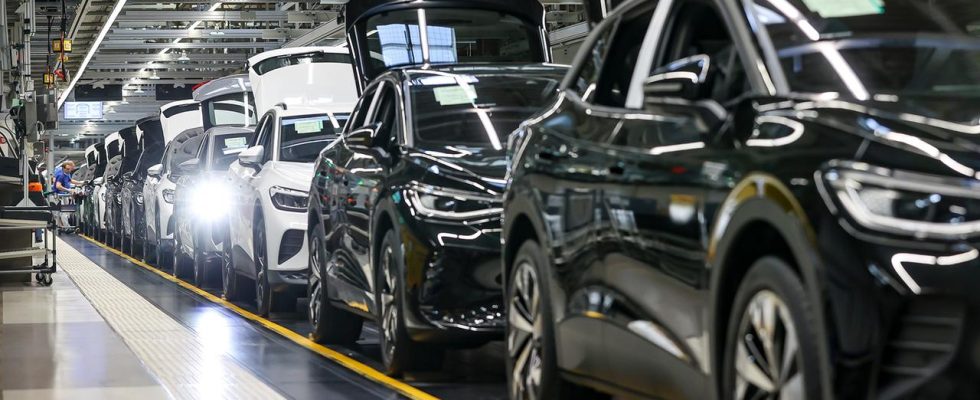The sales figures of German car manufacturers in the first quarter were inconsistent. While Mercedes-Benz sold fewer vehicles, the Volkswagen Group and BMW recorded an increase.
The Volkswagen Group and BMW delivered fewer cars in the first three months of 2024 than in the previous year. In the first quarter, VW sold 2.1 million vehicles, a good three percent more, the company announced today. BMW also got rid of around 595,000 cars, 1.1 percent more than a year ago. Things went less well for Mercedes-Benz, however: the car manufacturer recorded a decline of six percent.
However, Volkswagen is delivering fewer vehicles in March
The company said that growth drivers at VW were primarily China, South and North America. In Western Europe and in the home market of Germany, however, sales fell by one percent each. Vehicles with combustion engines increased by four percent to 1.97 million units in the first three months. They more than compensated for the three percent decline in fully electric models to 136,400 vehicles.
Deliveries of electric cars in Europe fell by 24 percent; strong growth in China was unable to offset this. However, incoming orders in Western Europe developed positively from January to March. More than twice as many purely electric models were ordered as in the same period last year, so the order backlog in this segment is currently around 160,000 vehicles. Hildegard Wortmann, member of the Extended Group Management for Sales, was confident “that we will grow in this segment both in our home region and worldwide for the year as a whole.”
Meanwhile, the Volkswagen Group had to cope with a loss in March. Sales fell by 1.4 percent to 800,600 cars. Deliveries fell in European areas and in China, among others. Volkswagen was able to make gains in the American region. Higher-priced brands such as Audi and Porsche sold less, but sales of the core brands Volkswagen and Seat developed positively.
BMW sales are growing with electric cars and expensive models
At BMW, fully electric vehicles as well as high-powered and luxury cars were particularly popular in the first quarter, the company reported. The number of battery cars (BEVs) sold rose by almost 28 percent to 82,700. Sales of cars in the upper price segment rose by almost 22 percent. With different types of drive, BMW can respond to changing customer needs. It is now clear that this strategy is proving successful, said Sales Director Jochen Goller.
In Europe, demand for Munich-based cars grew by 5.5 percent to around 228,000. In the USA, sales rose by 1.2 percent to around 91,000 cars. In the important Chinese market, however, deliveries fell by 3.8 percent to around 187,000 cars. Sales of the Mini brand fell worldwide by 9.4 percent to just under 83,000 vehicles. The company announced that preparations for the market launch of the new Mini family were in full swing.
BMW is targeting slight growth in deliveries for 2024. Fully electric vehicles and models from the upper premium segment are expected to see double-digit growth. Last year, BMW sold 2.55 million cars, significantly more than ever before. The group plans to present its financial figures for the first quarter on May 8th. The general meeting will follow on May 15th.
Model change and Supply chain issues dampen Mercedes sales
Mercedes-Benz, however, sold fewer vehicles in the first quarter than in the same period last year. With 568,400 cars and vans sold, that was a decline of six percent, the car manufacturer said. The passenger car division recorded a decline of eight percent with 463,000 vehicles sold. In the case of vans, however, an increase of seven percent was achieved with 105,400 vehicles.
The decline in passenger cars is primarily due to model changes and restrictions in the supply chain in Asia, which “temporarily significantly dampened sales” in the first quarter, it said. In China, the decline (minus twelve percent) is primarily due to the ramp-up of the E-Class with a long wheelbase, although sales are expected to increase in the coming quarters. With 168,900 vehicles, Mercedes still sold more than one in three cars on the Chinese market, which is so important for the company.
Mercedes also recorded a decline in fully electric cars. Sales in this area fell by eight percent to 47,500 units. Around every tenth car sold in the first quarter was a purely electric car.

